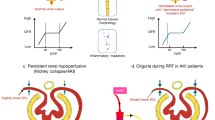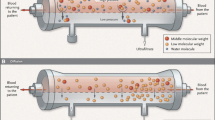Abstract
Our aim was to analyze the short- and long-term function of kidneys procured from non- heart-beating donors (NHBD) by means of three techniques: in situ perfusion (ISP), total body cooling (TBC) and normothermic recirculation (NR). Fifty-seven potential NHBD were included. Mean warm ischemia time was 68.9 ± 35.6 min. Forty-four kidneys were obtained from donors perfused with ISP, 8 with TBC, and 8 with NR. Eighteen kidneys (32 %) started functioning immediately, 29 (52 %) showed delayed graft function (DGF) and 9 (16 %) showed primary non function (PNF). The actuarial graft survival rate was 76.4 % at 1 year and 56 % at 5 years. The patient survival rate was 89.3 % at 5 years. Incidence of DGF and PNF was significantly lower in kidneys perfused with NR than those with ISP or TBC (P < 0.01). Duration of DGF was shorter in kidneys obtained through TBC than in kidneys obtained with ISP (P < 0.05). In conclusion, NR reduces the incidence of DGF and may be considered the method of choice for kidney procurement from NHBD.
Similar content being viewed by others
Author information
Authors and Affiliations
Additional information
Received: 21 July 1999 Revised: 11 January 2000 Accepted: 5 May 2000
About this article
Cite this article
Valero, R., Cabrer, C., Oppenheimer, F. et al. Normothermic recirculation reduces primary graft dysfunction of kidneys obtained from non-heart-beating donors. Transpl Int 13, 303–310 (2000). https://doi.org/10.1007/s001470050706
Issue Date:
DOI: https://doi.org/10.1007/s001470050706




